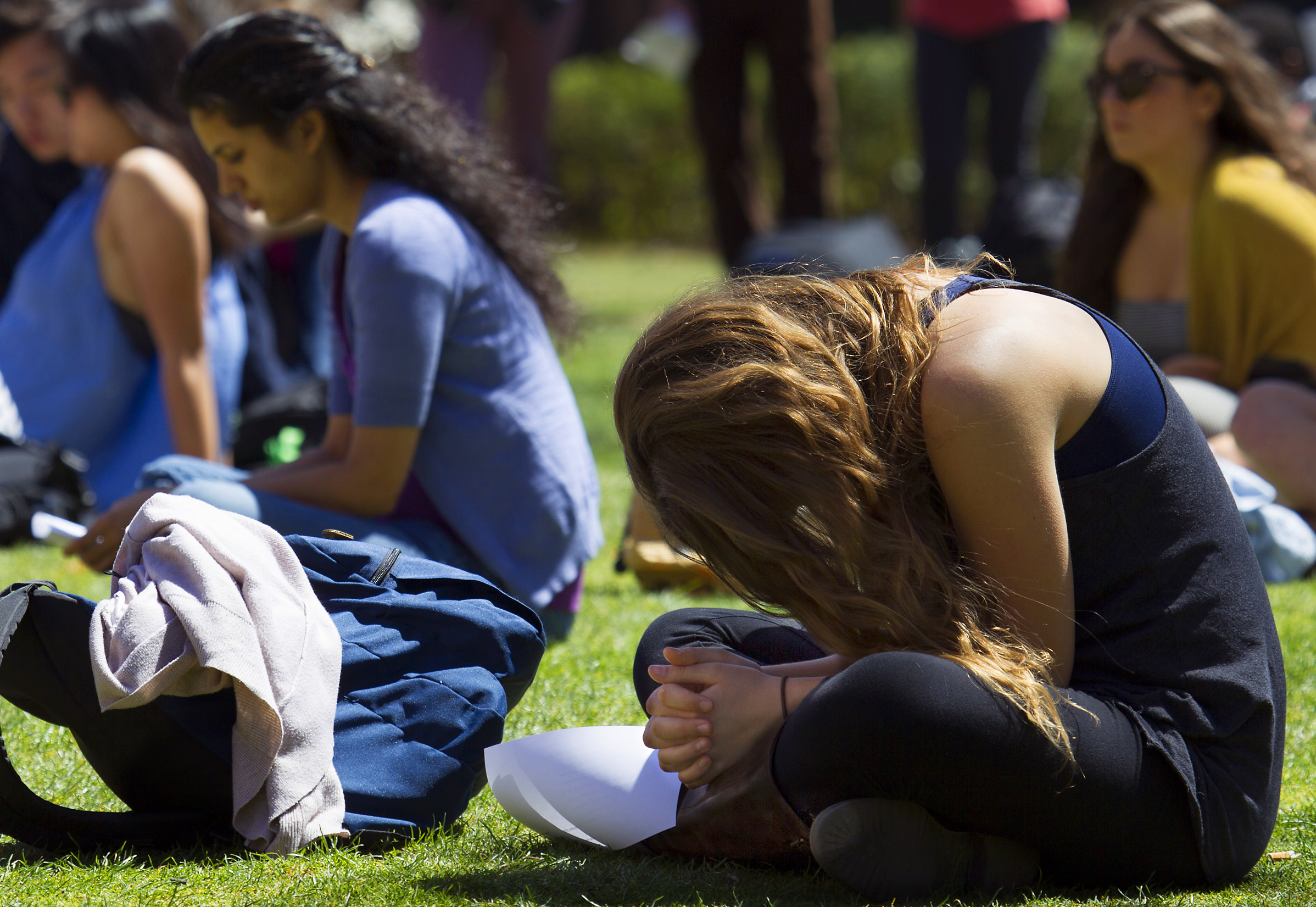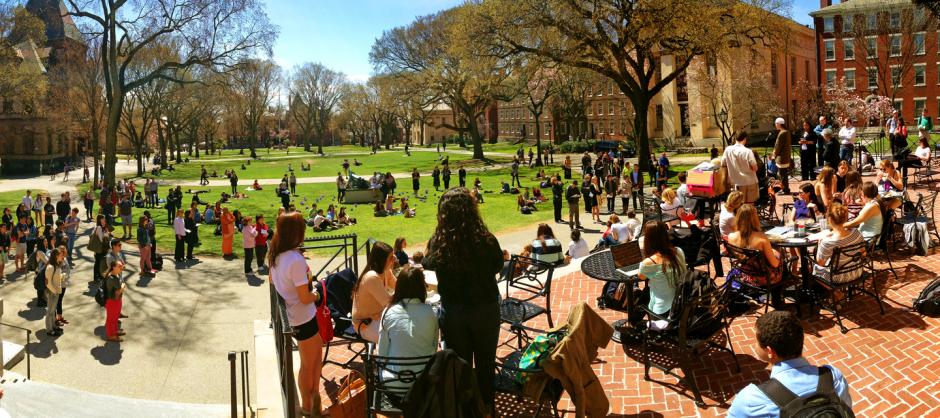With a sometimes stark and sometimes comforting words each encouraging people to strive for the resilience of joy and faith, campus spiritual leaders led scores of faculty, students, and staff in a vigil Wednesday at noon in response to the bombings at the finish line of the Boston Marathon.
“The hardest thing about being the survivor of terror or near-misses, and I’m speaking from my own unfortunate experience, is reclaiming sound,” said Rabbi Mordechai Rackover, who as a student in Israel endured bombings, being shot at, and the death of close friends that by chance he was not with at their fatal moment. “The boom of a truck going over a speed bump is never the same again. The sound of your phone ringing. The moment when you hear the news until the moment when your phone rings and you know everyone is checked in and is safe is a really long and hard silence.”

Indeed, the Rev. Janet Cooper-Nelson, University chaplain, opened the gathering with the somber observation: “We’ve gathered here against our will. We wish that in fact the tragedies that occurred on Monday at the Boston Marathon were not ones that were bringing people across the world together, but they are.”
The cohesion of the Brown community, as diverse as it is, was evident in moments such as the successive readings of a passage from the New Testament by Catholic Chaplain Henry Bodah, asserting hope in the face of difficulty, and the opening verse of the Koran, by Muslim Chaplain R. David Coolidge. They were in turn followed by Protestant Chaplain Kirstin Boswell-Ford.
Although infused with spirituality, the vigil’s inspiration came as much from the community of runners as the community of faith. Cooper-Nelson, who used to cheer on marathoners right along the race route as a student at Wellesley, said runners from the University’s track teams helped inspire her to convene the vigil.
Junior runner Melanie Fineman e-mailed the women’s and men’s teams this morning and many members attended the vigil.
Like a successfully run race, the vigil reached its finish. Led by Cooper-Nelson, the audience read the hopeful June Jordan poem, “The Nature of This Flower Is to Bloom.”
She followed that with a call for silence, “until our bells call us back to the happy and joyful chaos of the sounds of this green and of the love we share here.”
The bells tolled for a full minute and then Cooper-Nelson declared, “May joy return.”

